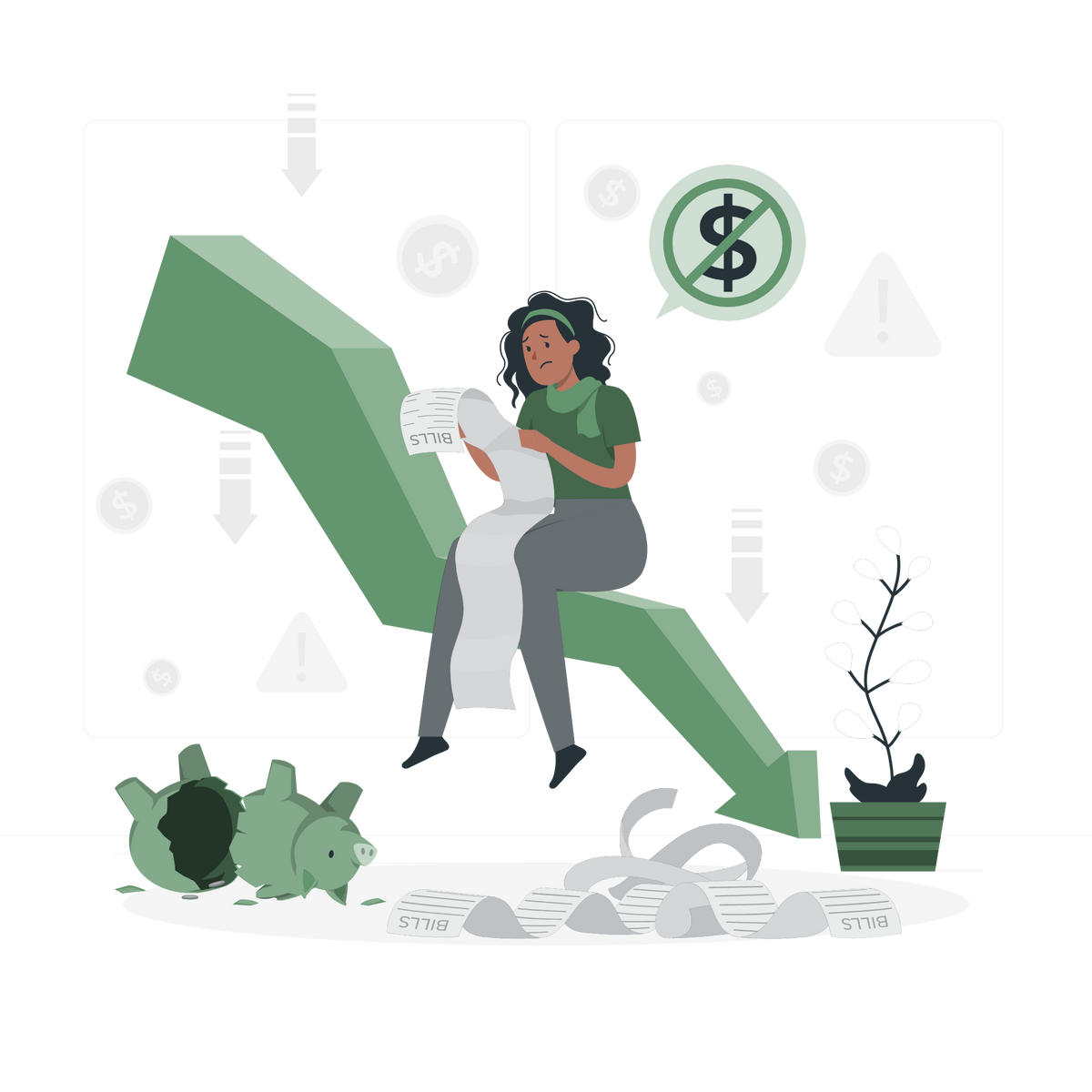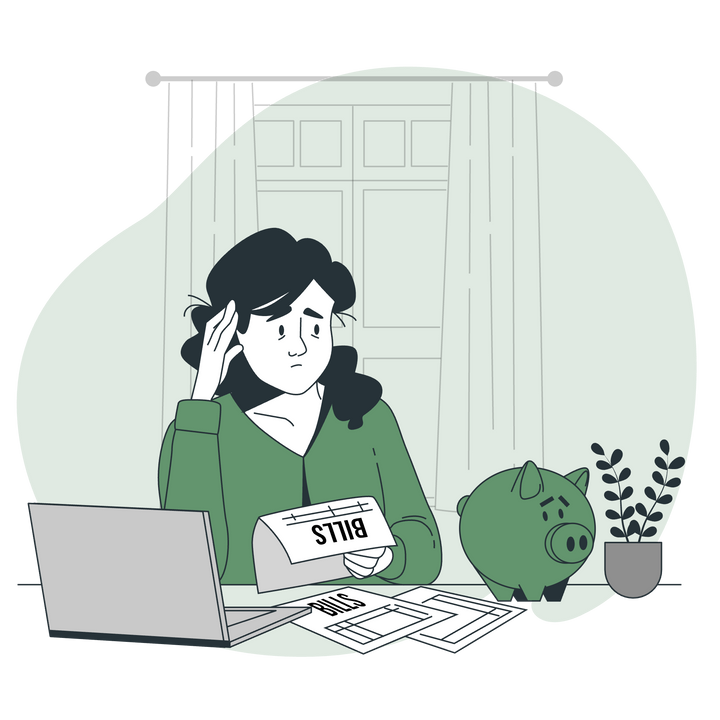Who Pays for Bankruptcies? An Overview of the Financial Implications
Bankruptcy comes in many forms and can be a way to mitigate your financial woes if it comes to that. Here's the details on who pays for bankruptcy.

Bankruptcy can be a complex and confusing process. If you are considering filing for bankruptcy or are interested in learning more about the financial implications of bankruptcy, it is essential to understand the basics.
In this article, we will discuss the different types of bankruptcy, the role of creditors and debtors, and the impact of bankruptcy on individuals, businesses, and the government.
Understanding Bankruptcy: The Basics
Bankruptcy is a complex legal process that can be difficult to navigate without the help of an experienced attorney. If you are considering filing for bankruptcy, it is important to understand the basics of the process and the different types of bankruptcy available.
What is Bankruptcy?
Bankruptcy is a legal process that provides individuals, businesses, and organizations with financial relief when their debts exceed their ability to pay. It is a way to get a fresh start by eliminating or reducing debts, which can help individuals and businesses get back on their feet.
Bankruptcy is not a one-size-fits-all solution, and the type of bankruptcy you file will depend on your unique situation. It is important to consult with an attorney to determine which type of bankruptcy is right for you.
Types of Bankruptcy
There are several types of bankruptcy, each with unique requirements and consequences. The most common types of bankruptcy are Chapter 7 and Chapter 13 bankruptcy.
- Chapter 7: Also known as a liquidation bankruptcy, Chapter 7 bankruptcy is designed for individuals who have minimal assets and cannot pay their debts. In Chapter 7 bankruptcy, a trustee is appointed to liquidate non-exempt assets to pay off creditors. Most unsecured debts, such as credit cards and medical bills, are discharged in Chapter 7 bankruptcy.
- Chapter 13: Also known as a reorganization bankruptcy, Chapter 13 bankruptcy is designed for individuals who have a regular income and can pay off their debts over time. In Chapter 13 bankruptcy, a repayment plan is created to help individuals pay back their creditors over a period of three to five years.
Other types of bankruptcy include Chapter 11 bankruptcy, which is designed for businesses and allows them to reorganize their debts and continue operating, and Chapter 12 bankruptcy, which is designed for family farmers and fishermen.
The 3-Step Bankruptcy Process

The bankruptcy process can be lengthy and complicated, and it is good to have an experienced bankruptcy attorney on your side to guide you through the process.
- The first step in the bankruptcy process is to file a petition with the bankruptcy court. This petition includes detailed information about your finances, including your income, expenses, assets, and debts.
- Once the petition is filed, an automatic stay is put in place, which stops all collection activities by creditors. This means that creditors cannot continue to call you, send you letters, or take legal action against you to collect on your debts.
- After the petition is filed, a trustee is appointed to oversee the bankruptcy case. The trustee's role is to review the individual's finances, liquidate non-exempt assets in Chapter 7 bankruptcy, and create a repayment plan in Chapter 13 bankruptcy. Creditors are also notified of the bankruptcy filing and have the opportunity to object to the discharge of their debts.
The Role of Creditors in Bankruptcy
Bankruptcy is a legal process that helps individuals and businesses who are unable to pay their debts by providing them with a fresh financial start.
However, this process also involves creditors, who play a crucial role in determining how the assets of the debtor are distributed. In this article, we will discuss the role of creditors in bankruptcy and how they can recover their debts.
Secured vs. Unsecured Creditors
As mentioned earlier, creditors are classified as either secured or unsecured in bankruptcy. Secured creditors have a security interest in the debtor's property and can take possession of that property if the debtor defaults on the loan.
For example, a mortgage lender is a secured creditor because they have a security interest in the property that is being mortgaged. On the other hand, unsecured creditors do not have any security interest in the debtor's property and are only entitled to receive payment if there are any assets available.
Examples of unsecured creditors include credit card companies and medical providers.
Secured creditors have a higher chance of recovering their debts than unsecured creditors because they can take possession of the debtor's property. However, even secured creditors may not be able to recover the full amount of their debt if the value of the property is less than the outstanding debt.
The Priority of Claims
When a debtor files for bankruptcy, their assets are distributed among the creditors based on the priority of claims. Secured creditors are at the top of the list because they have a security interest in the property.
The next in line are priority unsecured creditors, such as taxes and child support. Finally, unsecured creditors are paid last. If there are not enough assets to pay all the creditors, the unsecured creditors may not receive any payment.
Some debts have priority over others.
For example, taxes and child support have priority over other unsecured debts, such as credit card debt. This means that even if there are not enough assets to pay all the creditors, the taxes and child support must be paid first.
Recovering Debts from Bankrupt Entities
If a creditor's debt is discharged in bankruptcy, they cannot collect the debt from the debtor. However, creditors may be able to recover some of their debts through the liquidation of non-exempt assets in Chapter 7 bankruptcy or through the repayment plan in Chapter 13 bankruptcy.
In Chapter 7 bankruptcy, the debtor's non-exempt assets are sold to pay off the creditors. The trustee appointed by the court is responsible for selling the assets and distributing the proceeds among the creditors. If there are not enough assets to pay off all the creditors, the remaining debts are discharged.
In Chapter 13 bankruptcy, the debtor creates a repayment plan that lasts for three to five years. The debtor makes monthly payments to a trustee, who then distributes the payments among the creditors. At the end of the repayment period, the remaining debts are discharged.
The Impact on Debtors

Bankruptcy is a complex process that can have significant financial and emotional consequences for individuals and businesses. It is crucial to understand the potential impact of bankruptcy before deciding to file.
Financial Consequences for Individuals
Bankruptcy can have significant financial consequences for individuals. It is a legal process that allows individuals to eliminate or reduce their debt. However, bankruptcy can negatively impact a person's credit score and make it difficult to obtain credit in the future. Bankruptcy can also result in the loss of assets, such as a home or car, and can have long-term implications for financial stability.
It is important to note that not all debts can be discharged through bankruptcy.
For example, student loans, taxes, and child support payments cannot be discharged through bankruptcy. It is essential to speak with a bankruptcy attorney to understand which debts can be discharged and which cannot.
Business Bankruptcy and Its Effects
Business bankruptcy can have significant implications for owners and employees. When a business files for bankruptcy, it is typically a Chapter 7 or Chapter 11 bankruptcy.
Chapter 7 bankruptcy is a liquidation process that involves the sale of assets to pay off debts. Chapter 11 bankruptcy is a reorganization process that allows a business to continue operating while it restructures its debt.
Business bankruptcy can result in the closure of a business, the loss of jobs, and the loss of income for owners and employees. Business bankruptcy can also have long-term implications for the future of the company and its ability to obtain credit in the future.
Long-term Implications of Bankruptcy
Bankruptcy can have long-term implications for individuals and businesses.
- Bankruptcy can negatively impact credit scores and make it difficult to obtain credit in the future.
- Bankruptcy can also make it more challenging to secure employment or obtain housing. You should aim to understand the potential long-term implications of bankruptcy before deciding to file.
It is important to note that bankruptcy is not a decision to be taken lightly. It is a complex process that requires careful consideration and planning.
The Role of the Government in Bankruptcy
Bankruptcy is a legal process that allows individuals and businesses to eliminate or repay their debts under the protection of the bankruptcy court. The government plays an important role in this process, providing support and assistance to those who are struggling financially.
Bankruptcy Laws and Regulations
The government's primary role in bankruptcy is the creation and enforcement of bankruptcy laws and regulations. These laws and regulations help to ensure that the bankruptcy process is fair and equitable for all parties involved.
They provide guidance on the procedures for filing for bankruptcy, the types of debts that can be discharged, and the responsibilities of debtors and creditors.
Bankruptcy laws and regulations also establish the bankruptcy court system, which oversees the bankruptcy process and ensures that it is conducted in a timely and efficient manner. The court system is responsible for reviewing bankruptcy filings, mediating disputes between debtors and creditors, and approving or denying bankruptcy petitions.
Government-backed Loans and Guarantees
In addition to creating and enforcing bankruptcy laws and regulations, the government also provides assistance to individuals and businesses through government-backed loans and guarantees. These loans and guarantees can help individuals and businesses access credit and obtain financial relief.
For example, the Small Business Administration (SBA) offers loans to businesses that have been affected by natural disasters or economic downturns. These loans can be used to cover expenses such as payroll, rent, and inventory. The SBA also offers loan guarantees, which reduce the risk for lenders and make it easier for businesses to obtain credit.
Taxpayer-funded Bankruptcy Assistance Programs
Finally, the government funds bankruptcy assistance programs, which provide free or low-cost legal services to individuals and businesses who cannot afford an attorney. These programs can be a valuable resource for those who are considering filing for bankruptcy.
Bankruptcy assistance programs are typically run by nonprofit organizations or legal aid societies. They offer a range of services, including legal advice, representation in court, and assistance with filling out bankruptcy forms. These programs can help individuals and businesses navigate the complex bankruptcy process and ensure that their rights are protected.
In conclusion, the government plays a crucial role in bankruptcy, providing support and assistance to those who are struggling financially. Through bankruptcy laws and regulations, government-backed loans and guarantees, and taxpayer-funded bankruptcy assistance programs, the government helps to ensure that the bankruptcy process is fair, equitable, and accessible to all.
Conclusion
Bankruptcy can have significant financial implications for individuals, businesses, and the government. Be aware and aim to understand the basics of bankruptcy and the role of creditors, debtors, and the government in the bankruptcy process.
If you are considering filing for bankruptcy, don't hesitate to consult with an experienced bankruptcy attorney to guide you through the process and ensure that your rights are protected.




Comments ()